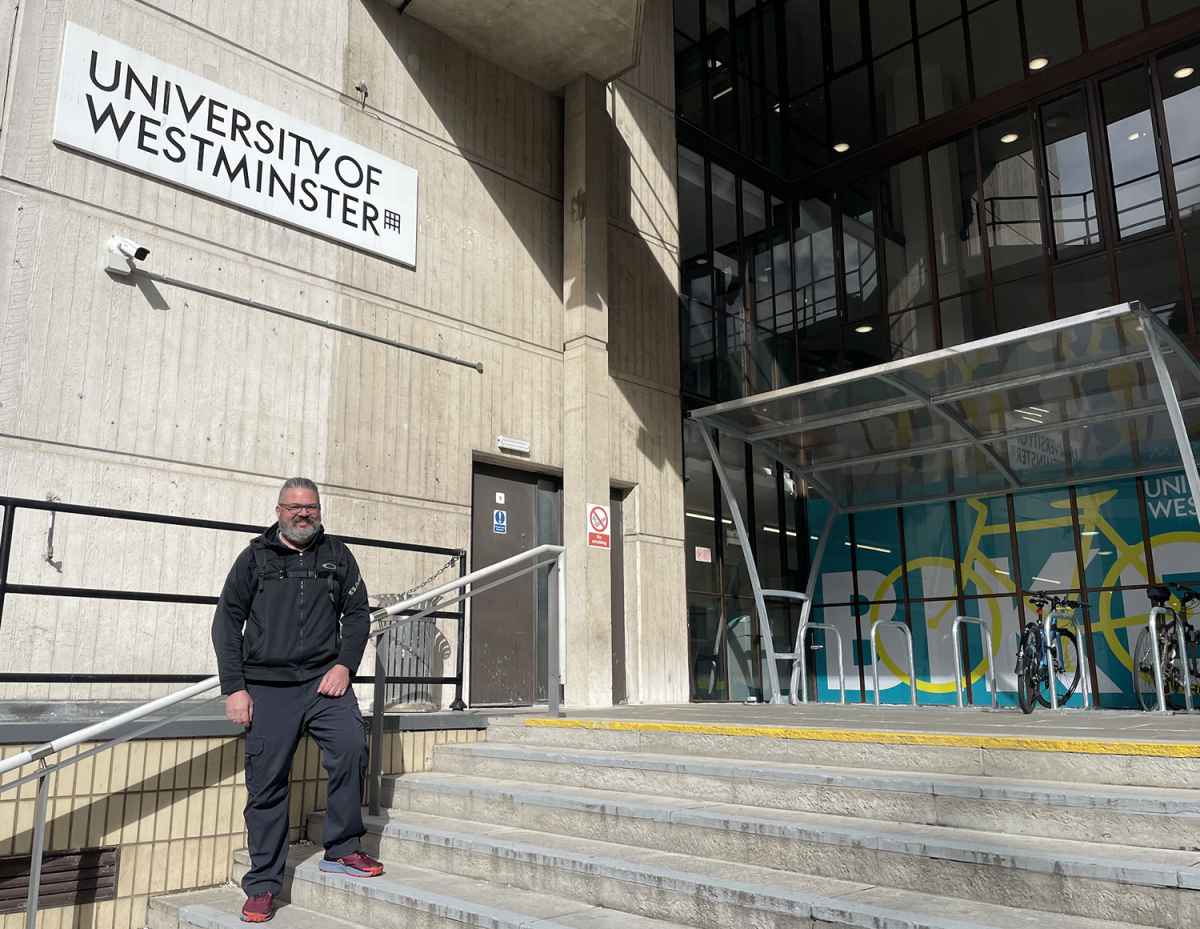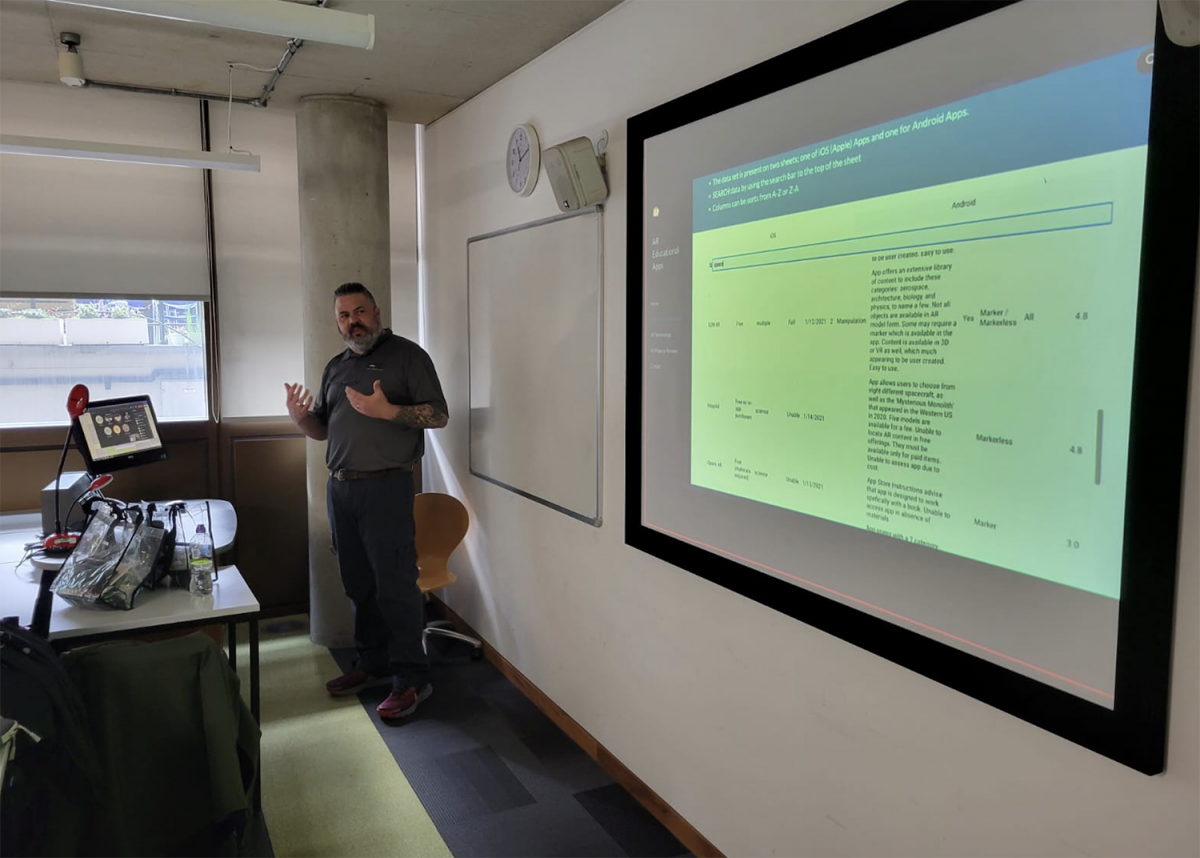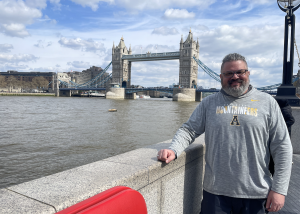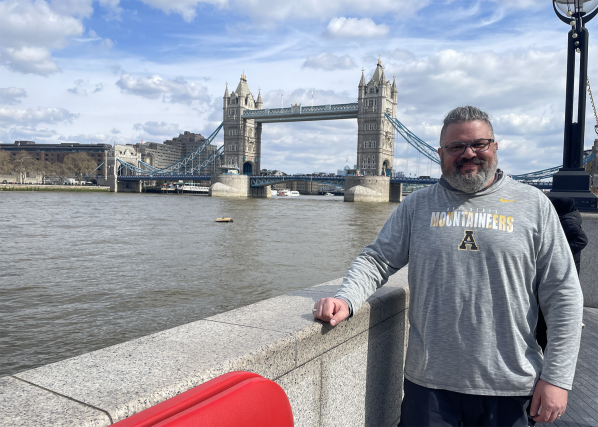Over the last four years Tim Scapin, a graduate of the Master of Arts in media, technology, and learning design program and current doctoral student, and Dr. Patrick O'Shea, a professor of instructional technology, have collaborated in academic research. Their area of focus is in immersive technology, namely augmented reality (AR). Their efforts have led to two papers being accepted for publishing and a bi-weekly podcast through the Immersive Learning Research Network (iLRN).
Their partnership began Scapin approached O’Shea with a desire to pursue academic research in immersive and emerging technology, specifically the realm of augmented reality and a review of commercially available educational augmented reality apps. This led to the papers, podcast, and their website where they freely share their findings for educators and practitioners.
Several months ago Scapin expressed an interest in collaborating with international partners. As a responsive research partner and mentor, O’Shea tapped his network of colleagues to find a good fit for their current endeavour. They landed with the University of Westminster.

For several months Scapin and O’Shea worked virtually with Markos Mentzelopoulos, a senior lecturer with the University of Westminster's School of Computer Science & Engineering (DCDI). With Markos and two of his computer science students — Ines Lobo and Jatinderbir Dole — they developed two prototype apps that would allow users to contribute to the larger review of AR apps.
Lobo and Dole both developed apps that gamified the app review process. One allowed users to pilot a spaceship through a solar system, and the other gave users their very own creature they could only feed and care for by reviewing apps, similar to what a Digimon may look like.
Their current phase of collaboration led to Scapin and O’Shea traveling to the University in London in April. They worked alongside their partners for four days, allowing them to meet face-to-face refining their efforts to take their app one step closer to a fully functional version. Plans are in place to continue this initiative in the months to come in order to bring the app to life.

"Collaborating with the team from the University of Westminster has been an amazing experience," noted Scapin. "Aside from pursuing our work in immersive technology, this was a great professional development opportunity.”
“I was able to connect with colleagues overseas and discuss topics from instructional design to instructional technology,” he added. “The whole experience was invaluable."
Be sure to listen to episode 55 of O’Shea’s podcast, The Versatilist, for a full recap of the trip to London.
Scapin is an instructional designer with Haywood Community College (HCC). The HCC Foundation did provide him funding for this professional development opportunity.

